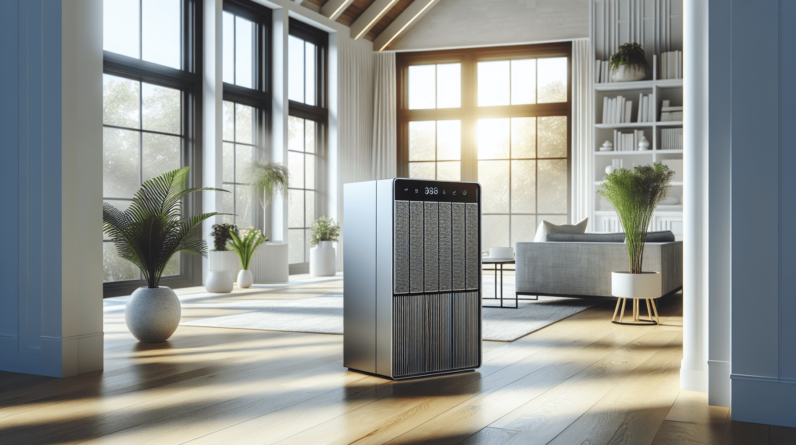
Have you ever found yourself searching for ways to keep your RV cool during those hot summer months? If so, you’re not alone! Many RV enthusiasts face the challenge of maintaining a comfortable interior temperature while on the road. Understanding the ins and outs of RV air conditioners can make all the difference in enjoying your travels, no matter the weather outside.
What is an RV Air Conditioner?
An RV air conditioner is a specialized cooling system designed for the unique environment of recreational vehicles. Unlike traditional home air conditioning units, RV ACs must be compact, lightweight, and energy-efficient to meet the demands of mobile living.
While some RVs come equipped with built-in air conditioning, others may require installation of a new unit or replacement of an old one. Understanding the different types and features will help you decide which option best suits your needs.
Types of RV Air Conditioners
Rooftop Air Conditioners
Rooftop units are the most common type found on RVs. Mounted on the roof, these units utilize a powerful compressor and fan to circulate cooled air throughout the vehicle. They are particularly effective because they draw in outside air while exhausting warm air, keeping the interior pleasantly cool.
Pros:
- Generally more efficient and powerful.
- Takes up no interior space.
- Can cool your entire RV quickly.
Cons:
- Installation may require professional help.
- Can create extra noise when operating.
Portable Air Conditioners
For those who need flexibility, portable air conditioners can be placed on the floor or other areas inside the RV. These units can often be moved around as needed, making them a versatile option.
Pros:
- Easy to set up and use.
- Can be relocated to target specific areas that need cooling.
Cons:
- Usually less powerful than rooftop units.
- Takes up floor space.
Understanding the BTU Ratings
When looking to purchase an RV air conditioner, you’ll encounter BTU ratings. This stands for British Thermal Units, which measure the cooling capacity of the unit. Choosing the right BTU rating is crucial to ensure your air conditioner performs effectively.
Factors Influencing BTU Needs:
- Size of the RV: Larger RVs require air conditioners with a higher BTU rating.
- Insulation Quality: Better insulation allows for a smaller unit since less cool air is lost.
- Climate: Hotter climates demand more cooling power.
Here’s a simple table to guide you in selecting the right BTU rating based on your RV’s length:
| RV Length (Feet) | Recommended BTU Rating |
|---|---|
| 16 – 20 | 10,000 – 13,500 |
| 21 – 25 | 13,500 – 15,000 |
| 26 – 30 | 15,000 – 18,000 |
| 31 – 35 | 18,000+ |
Finding the right size air conditioner can greatly enhance your comfort while traveling.
Key Features to Consider
When purchasing an RV air conditioner, consider these key features to maximize your investment.
Energy Efficiency
Choose an air conditioner with a high Energy Efficiency Ratio (EER) rating. Higher EER ratings indicate better efficiency, leading to lower energy costs and less strain on your RV’s power system.
Noise Level
Some air conditioning units can be incredibly loud, which can be disruptive during your downtime. Look for units specifically rated for quiet operation, especially if you plan to camp in peaceful surroundings.
Thermostat Controls
Digital thermostats offer precise temperature control where you can set your desired temperature and let the unit do the work. This feature enhances your overall experience as it maintains comfort without requiring constant adjustments.
Additional Features
Consider any additional features that may enhance usability:
- Remote Control: Convenience at your fingertips.
- Dehumidifier Setting: Helps in humid climates by removing excess moisture from the air.
- Heating Capability: Some units can double as heaters, making them useful during cooler months.
Installation Options
Deciding how you will add or replace your air conditioner can also affect your overall experience. Here are some installation options you might consider:
DIY Installation
If you’re handy, you may be able to install a rooftop air conditioner yourself. However, ensure you follow all manufacturer guidelines and have the necessary tools. It’s essential to have someone assist you, especially when lifting the unit onto the roof.
Professional Installation
For those who prefer a hassle-free experience, hiring a professional might be the best option. Many RV service centers offer installation services, ensuring the job is done correctly. This can save you time and potential headaches down the road.

Maintenance Tips for RV Air Conditioners
Keeping your RV air conditioner in peak condition requires routine maintenance. Here are some tips to help you manage that.
Clean the Filters
Air filters should be checked monthly and cleaned or replaced as necessary. Dust and debris can hinder airflow, making your unit less efficient. A clean filter helps maintain air quality and improves AC performance.
Inspect the Coils
Keep an eye on the evaporator and condenser coils. If they become dirty, it can lead to higher energy consumption and ineffective cooling. Regularly clean the coils to help maintain efficiency.
Check for Leaks
Periodic inspections will help you spot any wet spots or moisture accumulation, which could indicate a refrigerant leak. If you notice anything unusual, contact a professional immediately.
Service the Unit Annually
Even if you don’t encounter issues, an annual servicing by a certified technician can help ensure everything runs smoothly. They can identify any potential problems before they become more significant issues.
Troubleshooting Common Problems
Even with the best maintenance, issues can sometimes arise. Here are some common problems you might encounter with your RV air conditioner and how to troubleshoot them.
Unit Not Cooling Effectively
If your air conditioner seems to be running but not cooling efficiently, check the following:
- Dirty Filters: Clean or replace them if needed.
- Blocked Vents: Ensure that air can flow freely from vents inside the RV.
- Refrigerant Levels: Low refrigerant levels may require professional assistance to resolve.
Unit is Noisy
Noise can be disruptive, especially when you’re trying to relax. If your unit is excessively loud, investigate:
- Loose Parts: Check for any screws or components that may have come loose.
- Debris: Inspect the fan and other moving parts to ensure they are free from obstructions.
Electrical Issues
If you experience frequent trips in your circuit breaker, it could signify an electrical issue. This could stem from:
- Overloaded Circuit: Reduce the number of appliances on a single circuit.
- Faulty Wiring: Consult with a professional to inspect internal wiring for any issues.

Energy Consumption and Efficiency
While RV air conditioners are designed for efficiency, understanding how to properly manage energy consumption can help you maximize your battery life or fuel usage.
Power Sources
Depending on your RV setup, air conditioners can operate on different power sources:
- Electricity: Traditional RV parks usually have electrical hookups that can power your AC without much problem.
- Generator: Ensure your generator is adequate for your air conditioning needs, especially in off-grid settings.
- Solar Power: Some RV enthusiasts opt for solar panels to power their air conditioners, providing eco-friendly energy while minimizing costs.
Tips for Efficient Usage
- Keep Windows and Doors Closed: This prevents cool air from escaping and keeps the hot air outside.
- Use Ventilation Fans: Ceiling fans or roof vent fans can help circulate cool air throughout the RV.
- Shade Your RV: Parking in shaded areas can significantly lower the temperature inside your RV, reducing the need for excessive cooling.
The Future of RV Air Conditioning
As technology continues to evolve, so do the options for RV air conditioning. Newer models are not only more energy-efficient but also offer smart technology integration that can enhance your travel experience.
Smart Air Conditioners
Some modern RV air conditioning units come equipped with smart technology, allowing you to monitor and control your AC from your smartphone. This added convenience can help you maintain a comfortable environment without constant manual adjustments.
Eco-Friendly Options
Sustainability is becoming increasingly important in the world of RVing. Several brands are now creating units that reduce environmental impact, offering energy-efficient models that utilize less power without sacrificing performance.
Future Trends
Researchers and manufacturers are constantly working on innovative solutions to improve RV air conditioning systems, focusing on factors like noise reduction, enhanced energy efficiency, and compact designs. Keeping an eye on new developments could lead you to even better solutions for your next adventure.
Conclusion
Understanding RV air conditioners is essential for creating a comfortable environment while enjoying your travels. From selecting the right unit to ensuring proper maintenance, every step you take allows you to relish the fun of the open road without being sidelined by the heat.
By considering factors like BTU ratings, energy efficiency, and noise levels, you can make an informed decision that aligns with your needs. With the right air conditioner and maintenance, you can turn your RV into a cool sanctuary, ready for any adventure that awaits you. Happy travels!








